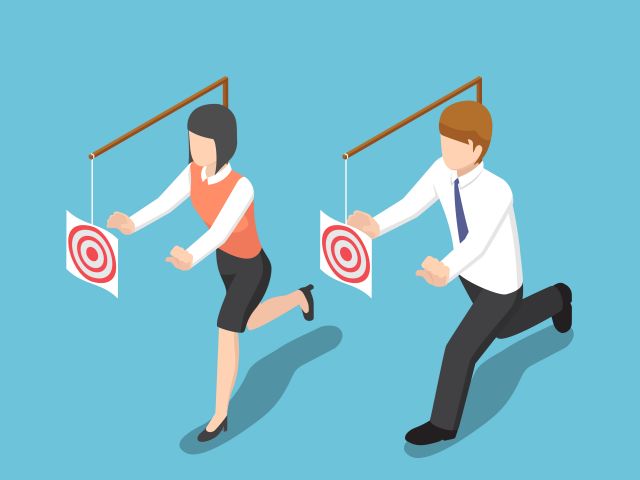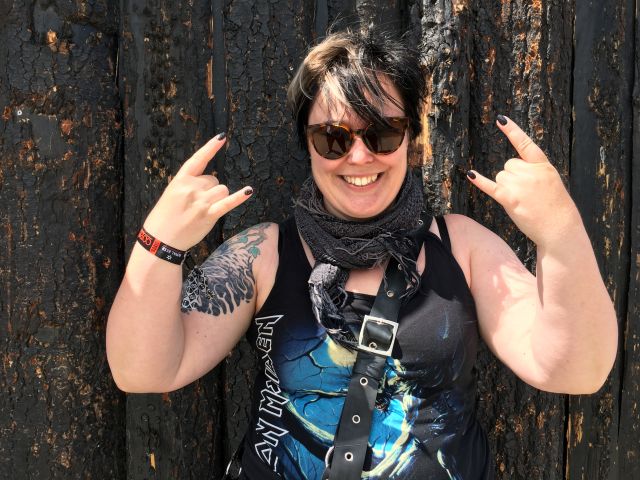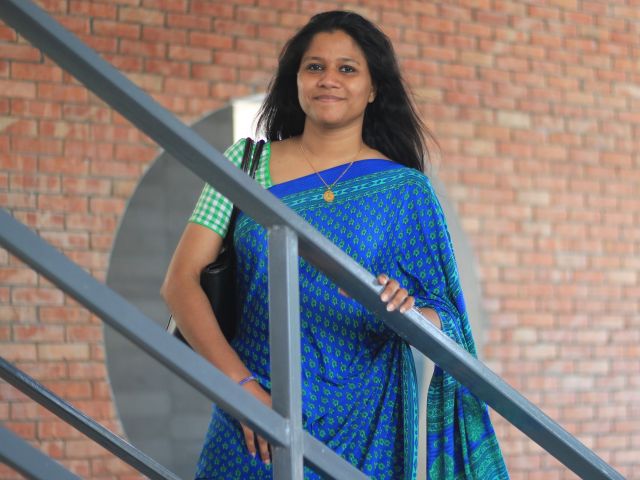Leaders should experiment more

New research shows that a more practical and experimental approach creates better management.
ResearcherZone | 26. Jun 2018
By: Poula Helth, Center for Business Development and Management, Department of Operations Management, CBS.
Leaders should be present. Just like the world of sport or art, you as a leader in an organisation need to brand yourself, physically. To do so, you need to breathe in order to prepare yourself to experiment and open your mind.
In my PhD project, I have studied how we can best educate future leaders. My results suggest that management training should contain creative, experimental, and practically orientated methods, and not just abstract theories.
My research is based on international studies of ‘art based interventions’ and ‘aesthetic leadership.’ You can read more about this in my PhD thesis “Learning in practice,” CBS 2018.
The gap between theory and practice
Until now, we have educated managers in leadership skills through managerial courses and programs in order to teach them how to think and reflect, based on abstract theories. The managers are often satisfied with this. However, the learning process misses something in relation to daily life in the organisation.
As a teacher and consultant in management education, I have often seen a gap between management learning and the social reality of organisations. Based on these observations, I discovered deficiencies in management learning, where managers learn how to practice their leadership in an organisation.
This is why I developed new learning methods based on leaders’ organisational practice through action research, as an alternative to teaching based on text books.
Experiments based on aesthetic drama
My research involves 80 leaders from 10 companies experimenting with aesthetic methods, in which they were asked to experiment with problems they faced in their daily practice as a social drama.
For this purpose, the leaders needed to experiment with an aesthetic drama, as an alternative to the social drama they experienced in their practice. I developed a Model of Aesthetic Embedded Transformation (MAET), which leaders should use as a basis for their experiments in their organisation.
I observed a change in the managers’ view of their daily problems, when the social drama converged to an aesthetic drama through the experiment. The reality in their daily life became more ‘real’ when the leader’s problem unfolded aesthetically during the experiment.
Managers could radically change their practice by experimenting artistically and creatively, especially when they combined their experiments with a learning process in groups.
I also found that managers who work within their own management team have much better opportunities to change practices than those who work individually.
Moreover, the effect of experiments conducted in groups were much better than individual and isolated experiments.
Thus, experiments led to changes of leadership practices in an organisational context, when managers were engaged in a learning processes with others based on their own experimental experiences.
Learning processes based on ‘The Audience Wheel’
Another learning method, I developed, was ‘The Audience Wheel’. This method consists of structural reflections in groups, where the leader as a ‘performer’ was separated from other participants during the learning sessions. Other participants had a role as the ‘audience’.
In this learning method, the managers played themselves.

This is in contrast to many other types of roleplay and theatrical performances used in the workplace.
The participants in the learning sessions – the ‘audience’ – were affected by the leader’s performance. Their senses opened up to a different point of view. Observing through their senses allowed ‘the audience’ to feel the mood and atmosphere of the event, which enabled them to be present and see reality in a more ‘real’ way.
In ‘The Audience Wheel’ part of the audience reflect through their body and explain how they sense the manager’s performance. The other part of the audience reflects on the perspectives of the new potentials created through the manager’s aesthetic performance.
Afterwards, the manager followed up on reflections from ‘the audience’ in order to implement changes in their daily leadership.
‘The Audience Wheel’ enables participants to view leadership from new perspectives, which affects the body when the senses are activated. The perspectives often lead to transformation of leadership in practice.
My conclusion is that this way of learning can lead to changes of managers’ daily problems and creates a foundation for an organisational transformation, which extends beyond personal changes.
Not everyone wants experiments
Of course, resistance and dilemmas may occur in the organisation when managers use aesthetic forms of experimentation, including body movement, drawing, and changing the room layout.
Thus, it was important for me to investigate how managers deal with such resistance and dilemmas.
The results of my empirical research show that managers have good prerequisites for handling resistance when they adopt a comprehensive learning design.
This design includes liminal rituals, which create the transition from one state to another, namely a transition from the social drama to the aesthetic drama. In the learning design, the liminal rituals are combined with learning processes that include bodily-based reflection and perspectival reflexivity.
The liminal ritual prepares participants to concentrate on the learning process, as the process is delimited in time and space and marked as an experiment, separated from the usual daily leadership.
I have found that although aesthetic performance risks resistance in the organisation it also creates a foundation to deal with resistance. However, this requires that the aesthetic performance is used consciously based on a learning design.
Organise learning in practice
Management training and education could lead to valuable changes for the companies, if the companies allowed their leaders to train and develop aesthetic performance through learning processes in management groups. The premise is that organisations consider the learning process as important for creating good results in the managers’ daily practice.
Learning does not happen by itself. It has to be framed, structured, and guided by a person close to the executive part of the organisation in order to create the trust and authority needed among the leaders in the learning process.

Management groups are able to implement more radical organisational changes when the group is guided through the learning process by a human resource consultant or another guide from the organisation. Such guidance may also enable sustainable transformation.
Thus, managers should deliberately organise learning in their organisation if they want to have good results from experiments based on aesthetic performance.
Practise leadership in practice!
The question is whether managers should abolish theoretical abstract based learning. My answer, is no.
My research is not a complete break with previous management learning. However, there is a need for supplementary learning methods aimed at leadership development in organisational practice.
Organisations have not always gained sufficiently from the many resources used for management learning, even though managers often benefit from what they have learned. Management learning has to be more practice orientated.
Leadership trainers, teachers, and human resource consultants, should take practical learning into account when they plan their leadership development. This can be achieved by:
- Using creative aesthetic methods to organise and open up new potentials in the organisation.
- Experimenting with daily practices and doing something different instead of thinking and analysing.
- Putting more emphasis on collective learning and anchor leadership development in organisational based teams and groups.
Leadership development and management learning based on abstract theories is not as effective at dealing with the company’s challenges as leadership development based on bodily and spatial experiments.
In other words, there are good reasons to play and experiment in practice to become a better leader.
Additional information about this article is available by emailing pmh.om@cbs.dk



































































































































Comments